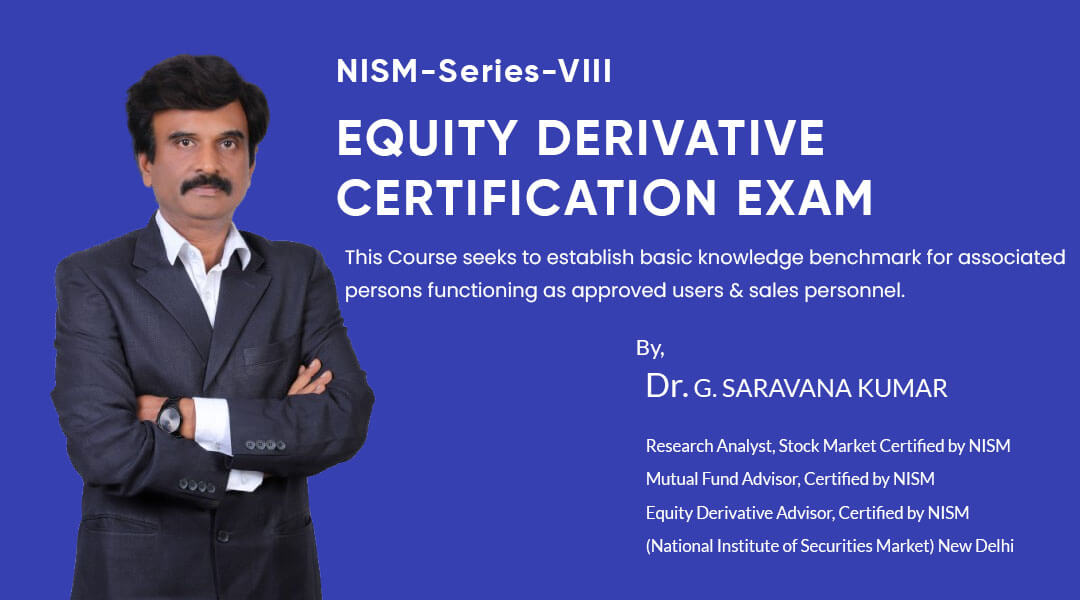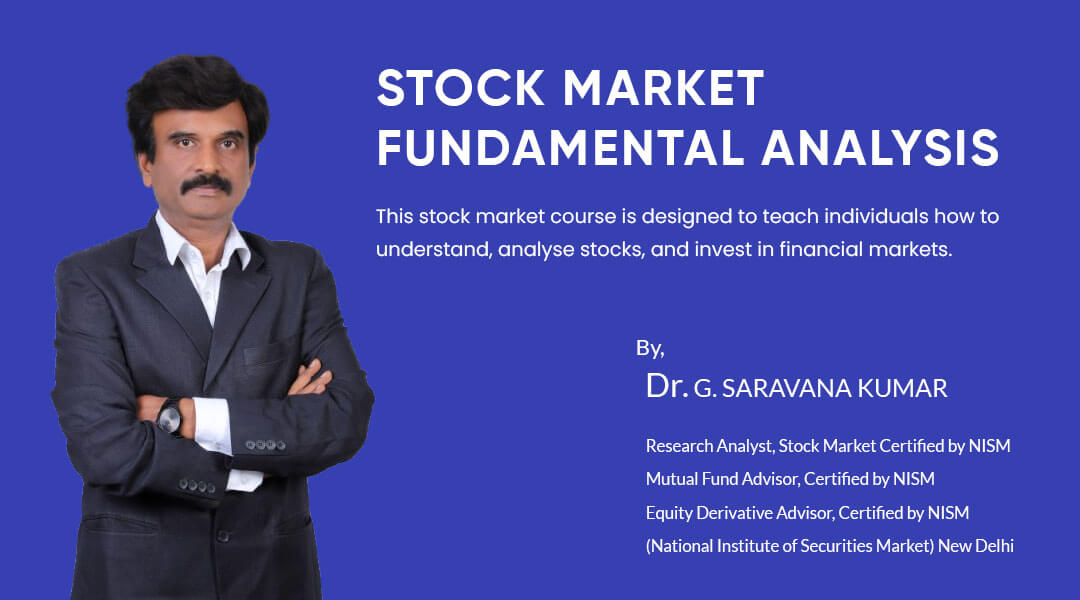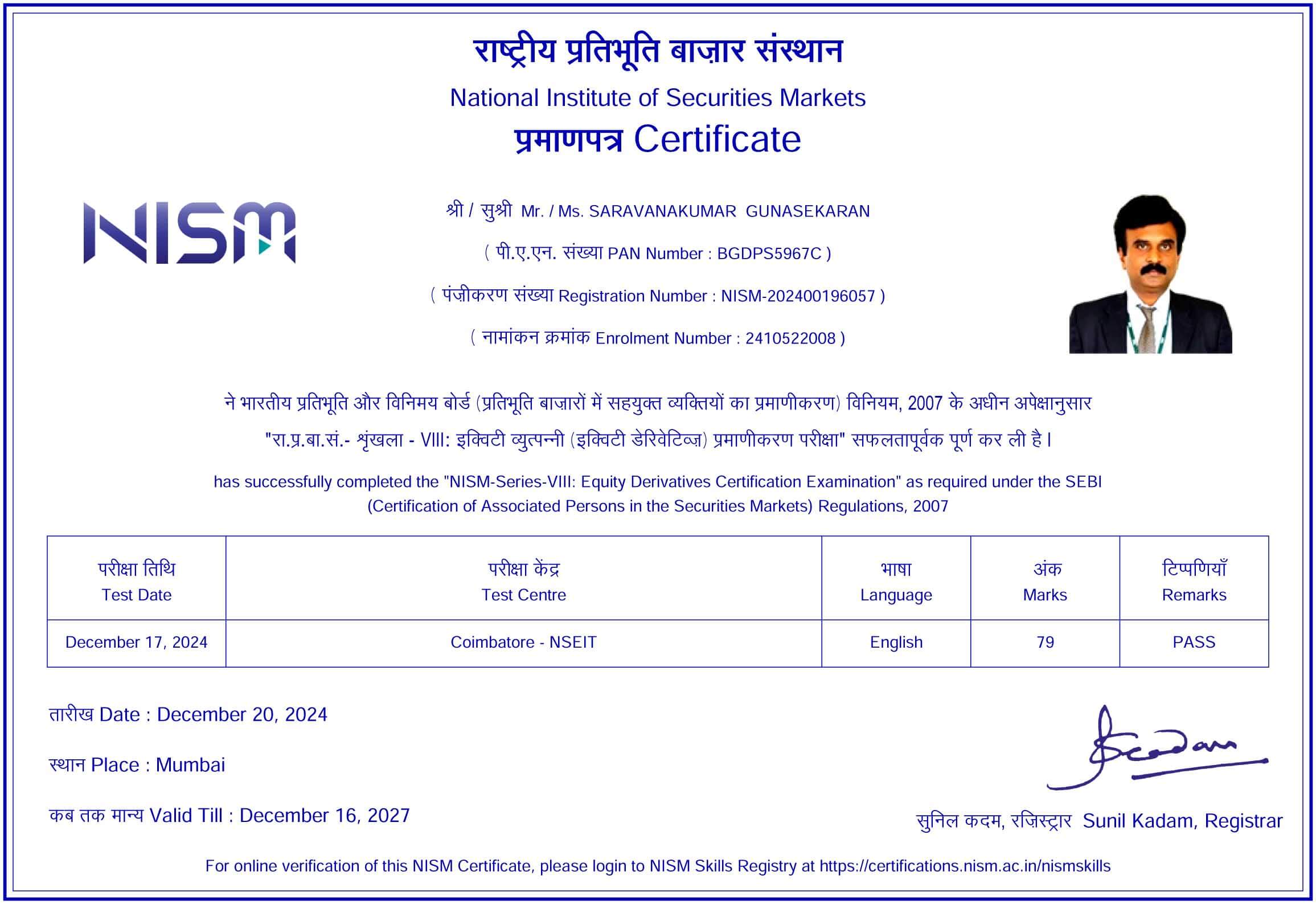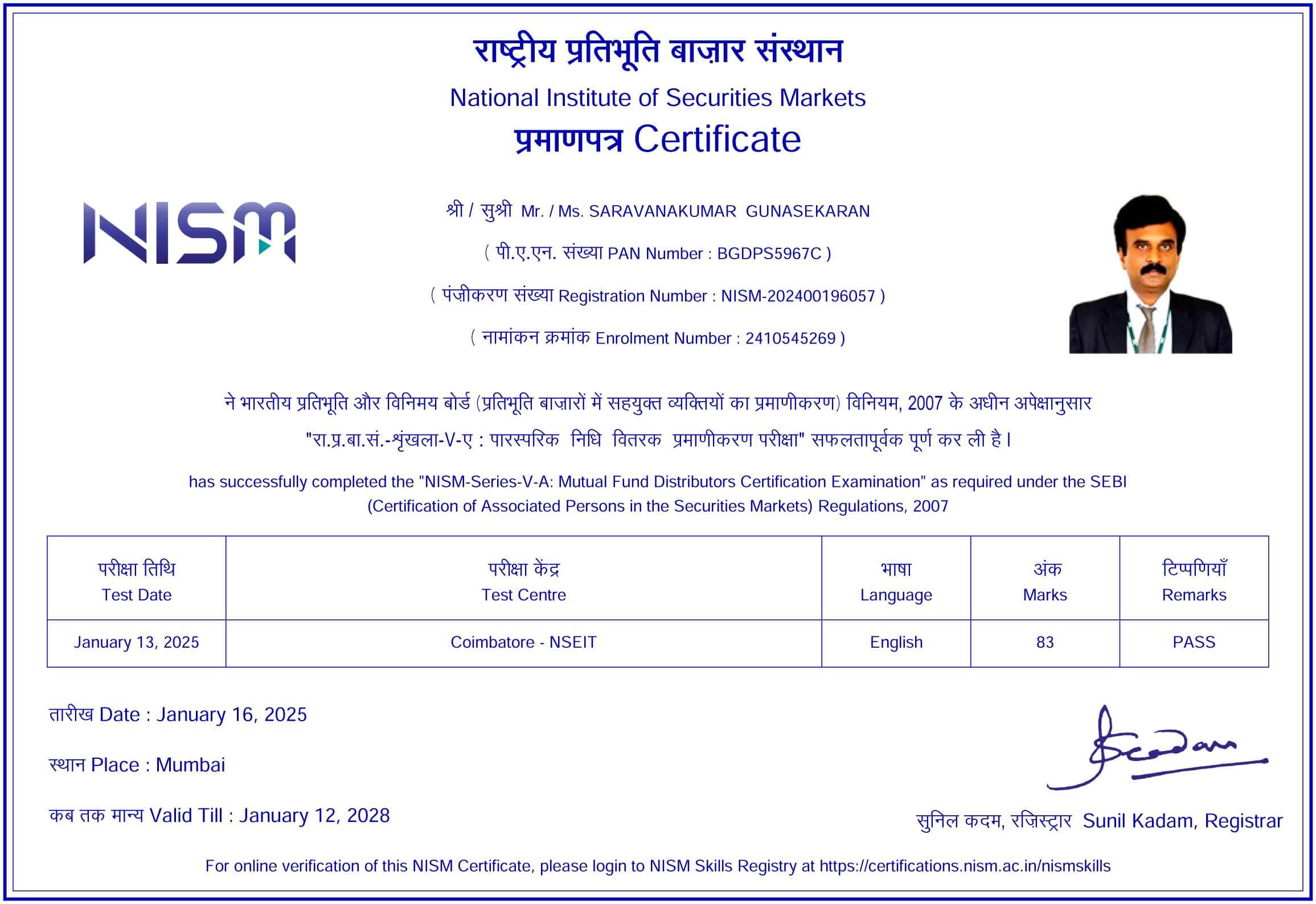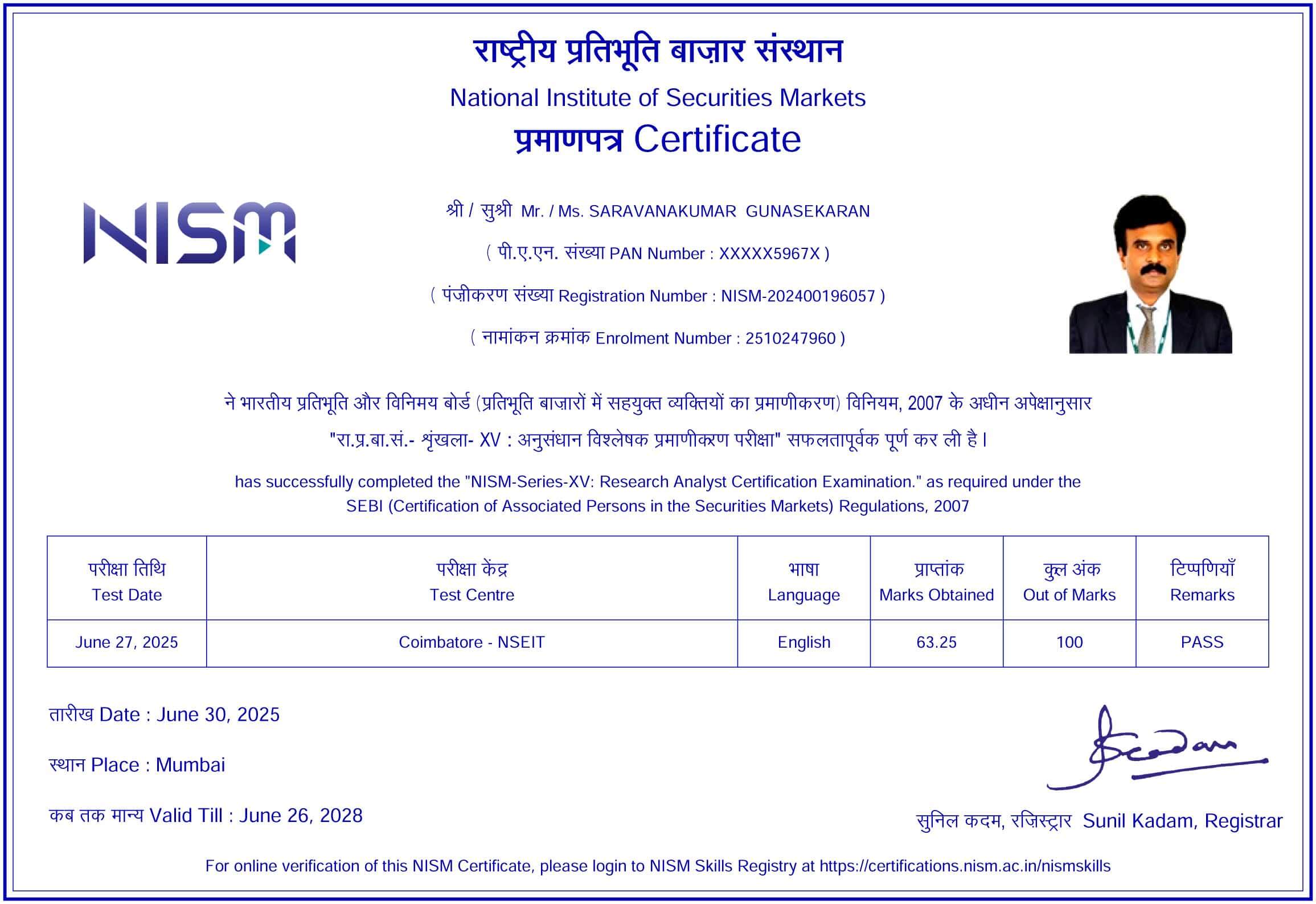NISM -Series- XV: Research Analyst Certification Examination
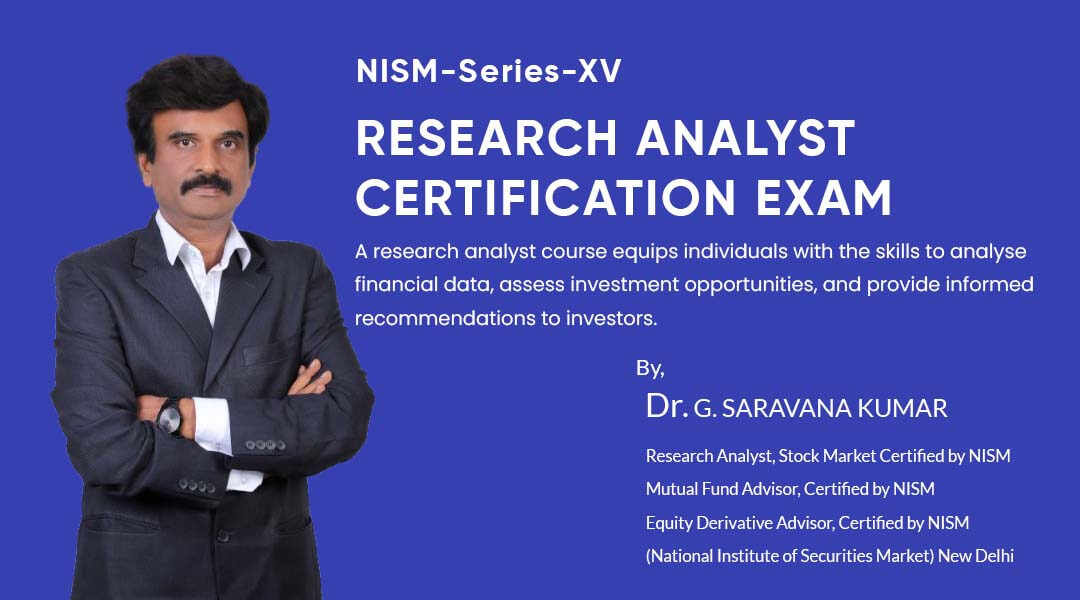
In the stock market, a research analyst course equips individuals with the skills to analyse financial data, assess investment opportunities, and provide informed recommendations to investors.
These analysts study financial statements, market trends, and economic factors to evaluate the performance and potential of listed companies, guiding investors on whether to buy, hold, or sell stocks.
They play a crucial role in the investment process by offering insights into market movements and helping investors make strategic decisions. This course provides you with an In-depth understanding of the stock market, Development of analytical and critical thinking skills, Career advancement opportunities, and Enhanced decision-making abilities.
Career Opportunities: Financial analysts in banking, insurance, and asset management which include;
- Portfolio construction
- Investment strategy
- Private wealth
- Investment banking
- Commercial banking
- Hedge funds
- Corporate finance
- Data science
- Quantitative investing
Role of a research analyst, Primary responsibilities of a research analyst.
Basic principles of interaction with companies and/or clients.
Important qualities that are desired in a Research Analyst.
Meaning of securities and the functions of the securities market.
Various kinds of products in the securities market, and securities market participants.
Dematerialization and Rematerialisation of securities.
Terminology used in equity markets.
Terminology used in debt markets.
Different types of bonds and their features.
Overview of Technical Analysis for investing in stocks.
Overview of the Fundamental Analysis for investing in stocks.
Overview of Quantitative Analysis (Econometrics approach), Behavioural Finance approach.
Principles of Microeconomics and Macroeconomics.
Sources of Information/data of economic variables for carrying out economic analysis.
Role of economic analysis in equity research, cyclical and secular economic trends.
Role of industry analysis in fundamental analysis, Challenges in defining an industry.
Industry cyclicality, market sizing, and trend analysis.
Porter's Five Forces Model, PESTLE analysis, BCG analysis, SCP analysis.
Role of company analysis, Different kinds of Business Models, SWOT Analysis.
Pricing Power and Sustainability: Critical success factors of a company.
Quality of management and governance of a company, ESG framework.
Role of financial analysis, Consolidated and stand-alone results of a company.
How to read a balance sheet, profit and loss account statement, and cash flow statement.
Importance of reading the audit report, peer comparison, equity expansion, and dividend.
Dividends, Rights Issue, Bonus Issue, Stock Split, and Consolidation.
Mergers and acquisitions, demergers/spin-offs, and schemes of arrangement.
Buyback of shares, Delisting and relisting of shares, Share swap.
Need for business valuations and sources of value in a business.
Various approaches to valuation, Different types of business valuation models.
Objectivity of valuations and important considerations in business valuation.
Return on Investment, calculating returns, simple, annualized, and compounded.
Risks in Investment and measuring market risk, Sensitivity analysis, Margin of Safety.
Comparative analysis of equity and bond returns, calculating risk-adjusted returns.
Essentials of a Good Research Report.
Checklist-based approach to writing research reports.
Quality of the Research Report.
Regulatory Framework of Indian Financial markets, Indian securities market.
Code of Conduct prescribed for research analysts, Conflicts and Disclosure.
Surveillance mechanism of exchanges: ASM and GSM.


